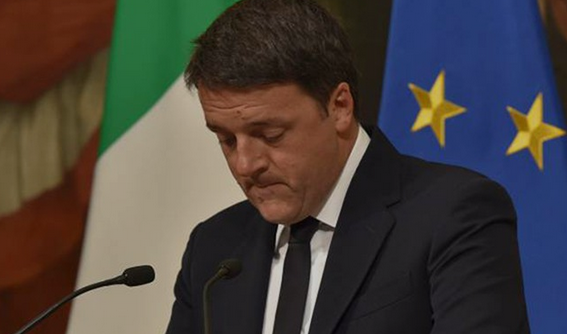On Sunday, the populist wave spreading across Europe saw a defeat in Austria after the Green Party’s Alexander Van der Bellen won 53.3% of the votes versus Hofer’s 46.4%. However, in Italy, with around 60% of voters opting for a “no”, and nearly 70% turnout, Italians firmly rejected an important Constitutional reform that would have removed power from the Senate and left the Lower House as the key legislative Chamber in Italy. The reform was one of the flagship measures of PM Renzi, who has already confirmed he will tender his resignation.
Patrice Gautry – Chief economist, Union Bancaire Privée (UBP) believes that “a period of political uncertainty is coming back on Italy, with rising difficulties to form a government coalition or to find a clear majority. No time for the government to engage new economic reforms in front of political uncertainties.”
According to Nicola Mai, Head of European Sovereign Credit Research at PIMCO the result is negative at the margin for Italian and European risk assets, for a couple of reasons:
- First, the reform’s failure means that Italy has lost an opportunity to make its political system leaner and more conducive to reforms.
- Second, Renzi’s resignation is likely to lead to a period of higher political uncertainty which comes in the midst of ongoing recapitalization efforts in the Italian banking sector.
However, he believes that negative market sentiment on the vote is likely to be mitigated by the fact that the market has been expecting a “no” (based on polls) and that the ECB, which will meet next Thursday remains in play in European sovereign markets. Although originally they experienced losses, shares in Italian banks have rallied this morning. “Tail risk is sentiment deteriorating significantly on Italian banks and infecting other Italian and European risk markets.” Mai points out stating that the referendum outcome makes the recapitalization of Monte dei Paschi harder to achieve, with potential negative knock-on effects on the rest of the system and in particular on Unicredit’s equity raising plans, which today announced is in exclusive talks with Amundi for the sale of Pioneer Investments.
The Amundi team considers the Italian referendum is particularly important for portfolio construction for several reasons:
- The markets doubt in Italy’s ability to make the reforms needed to revitalise its economy, which is a problem in a country where the debt-to-GDP ratio is well over 100%. The referendum is merely adding uncertainty to an already complex situation;
- It comes at the end of a year of political surprises that caught out some investors;
- It is being held just days before two much-awaited central bank meetings (ECB and Fed), which will only add to market jitters;
- The markets’ capacity to absorb heavy trading flows at the end of the year is, at best, reduced, and this is stoking fears that volatility will rise. This is particularly true as the Italian market’s interest rate futures are also used to hedge positions on other premium-based markets (the credit market, for example) when liquidity is tight.
In terms of next steps, President Mattarella will seek to facilitate the formation of a transition government, headed by a political or technocratic figure, tasked with leading through ongoing bank recapitalizations and reforming the current electoral law (which is currently inconsistent between the two Chambers). This will take some time, and elections are unlikely to be called until this is done (until mid-2017 at the earliest). The new electoral system is likely to be proportional in nature, and facilitate the formation of grand coalition governments in future.
The people “have spoken in a clear and unequivocal way… we leave with no regrets,” said Italy’s Matteo Renzi, before tendering his resignation. According to Allianz GI, Italy’s rejection of reforms and Renzi’s resignation may lead to early elections or other scenarios that could spook investors already facing a tumultuous political year in Europe. Then again, markets may have already discounted future bad news, and the ECB stands ready to step in.



 By Alicia Miguel Serrano
By Alicia Miguel Serrano